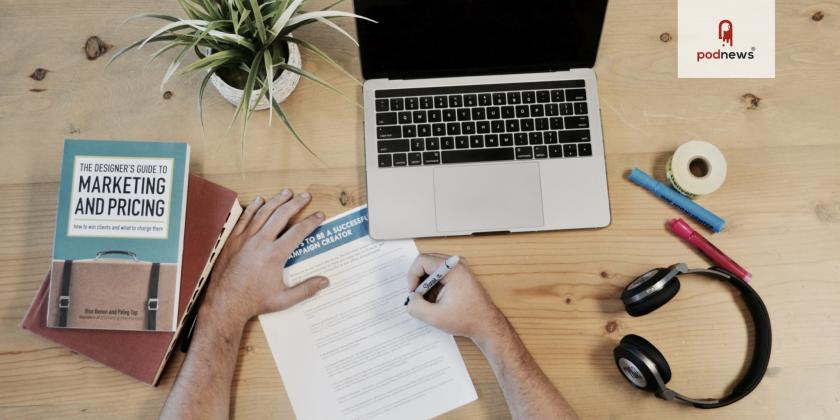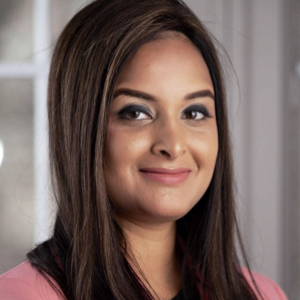
Why Podcast Marketing is a Must for Your Business

This article is at least a year old
Although the grand old days of traditional print advertising are gone, the pervasive influence of technology has given rise to a digital market that is larger and more cut-throat than ever. While avenues like TV and web advertising can still reach consumers, the key to success is diversification into new channels so as to reach the largest customer base possible and increase your organization’s market share. One such medium, podcasting, offers a relatively new advertising format that has been embraced by businesses and customers alike.
While podcasts are still new compared to other types of media, entrepreneurs and marketing executives should not be too quick to dismiss them from their advertising efforts. Data shows that podcasts have exploded in popularity over the past decade, with recent statistics from March 2021 indicating that approximately 80 million Americans—equivalent to 28% of the adult U.S. population—are weekly podcast listeners, up from a mere 19 million in 2013. This clear upwards trend shows no signs of slowing down, particularly given the sheer amount of content continually being produced on podcasting platforms. Here are six reasons why businesses need to take advantage of podcast marketing:
1. Fewer Competitors, Better ROI
As the podcasting medium is still relatively young—if not in its infancy, at least in its early adolescence—there is much less competition compared to more well-established advertising avenues, with only 32% of brands and agencies capitalizing on this medium. But this might not last for long. According to the U.S Podcast Advertising Revenue Study by PwC, advertisers are expected to spend up to $1 billion USD on podcast ads in 2021, with a projected annual growth rate of 14.7%. This recent boom in podcast advertising is attributed to the industry’s documented resilience to the on-going COVID-19 pandemic and the flexible and easily digestible format of its content in comparison to other forms of media.
Nevertheless, podcast advertising remains cost-effective, with a recent study showing that the average ROI for a podcast campaign is $2.42 USD. Another report found that podcast advertising was by far the best option for high conversion rates, topping out at 34% compared to digital display at 1.1%, print at 2.4%, and TV at 3.1%. The top 5% of podcasts are downloaded upwards of 10,000 times per episode, with the most successful episode reportedly downloaded 50,000 times in only 30 days, meaning that podcast ads can potentially reach a huge number of consumers over a very short period of time.
2. Targeted Access to a Specific Audience
One of the most important elements to successful advertising is targeting the right audience. Generally speaking, the more specialized the product, the more niche its audience will be. A fantastic aspect of podcast marketing is that it can be easily leveraged to appeal to both incredibly broad and extremely specific demographic segments. By virtue of the sheer number of podcasts available, with more than two million shows and over 48 million unique episodes, a whole host of podcasts likely already exist designed to appeal to your ideal audience. And if there aren’t—perhaps your brand should create one to cover this apparent gap in the market.
Podcasting allows advertisers to reach out to a niche audience who all share a similar interest, passion, or desire to learn more about a particular topic. Analytics show that podcast listeners tend to be educated and high-earning millennials or Gen Zers, thus representing a highly sought-after and extremely lucrative sales target. In addition, the audience for podcasts is becoming increasingly diverse, with 57%, 16%, 13%, and 4% of monthly podcast listeners being white, Latino, African American, and Asian, respectively.
3. Immunity to Ad Avoidance
Marketing executives often view rising trends of ad avoidance as inevitable, with younger consumers growing increasingly resentful of or desensitized to conventional advertising tactics. In the digital landscape, the widespread availability of ad blockers have made it easy for consumers to ignore or remove ads completely. But even without specific ad-blocking software or browser extension tools, web users are progressively showing signs of “banner blindness” in which individuals—either intentionally or subconsciously—ignore advertorial information online to shield against information overload. In 2013, Infolinks reported that 86% of consumers suffer from banner blindness, with only 14% able to recall the last display ad they had seen.
However, podcasts appear to be immune to the ad avoidance phenomenon. According to recent data, 78% of podcast listeners approve of sponsorships and 67% can accurately recall products and brands mentioned in podcast advertisements. However, the most effective podcast ads tend to be tailored to the interests of the audience, for instance through sponsored content or custom segments, and fit the show in terms of both tone and subject matter. Although it is still possible for users to fast-forward through podcast ads, many listeners remain tuned in because of their steady emotional or intellectual investment in the show or its host.
4. High Audience Engagement
For listeners, podcasts are a great method of consuming content due to their low-effort accessibility and multi-tasking flexibility. This mobile-friendly ‘to-go’ form of media can be enjoyed wherever and whenever desired, whether on a morning commute, while doing errands or household chores, or just before sleeping. However, compared to other forms of content, the act of seeking out and tuning in to a specific podcast is very intentional. Research shows that podcast consumers listen to an average of seven podcast shows per week, with 80% listening to all or most of each episode. Moreover, it was reported that 71% of respondents demonstrated much higher levels of concentration while listening to podcasts compared to when watching TV shows (56%) or posting on social media (50%).
One reason that podcasts foster such engaged and devoted audiences is because they are very interactive. Listeners develop strong relationships with podcast hosts who, in turn, foster this sense of community through various means, such as audience polls, answering questions, or taking calls. This intimate relationship results in significant levels of audience engagement. In addition, effective podcast ads are often seamlessly integrated into the show itself. In particular, mid-roll host endorsements allow for a natural method of promoting products or brands to a captive audience once listeners are already engrossed, thus making the ad come across like an honest recommendation from a trusted expert or friend, rather than a naked money grab.
5. Brand-Building and Story-Telling Capabilities
Podcasting is a storytelling medium which relies exclusively on a single sensory dimension—audio. This means that, in order to be successful, a podcast host has to be charismatic, entertaining, and able to retain the attention of the listener for the duration of an entire episode without having to fall back on flashy visuals. So, if you’re looking for yet another medium to run the same tired campaign from other advertising avenues, then podcast advertising is not the right channel for you. The last thing podcast users want to hear is an unoriginal cookie-cutter advert… and if that’s what you give them, they certainly won’t respond in the way you’re hoping for.
Ad content should be unique, organic, and tailored to the podcast in question. While it does entail greater effort in terms of creativity and originality, this investment into native advertising can pay off big. Data from the Podcast Playbook by the Interactive Advertising Bureau indicates that 61% of podcast listeners have actually purchased a product or service they learned about through podcast episodes, while around 71% have visited the advertiser’s website. Apart from direct sale efforts or conversions, podcasts also represent an ideal opportunity of building brand awareness or growing an audience through creative, inspirational, or comedic means, as exemplified by such podcasts as The Sauce by McDonalds, Open for Business by eBay, or Hackable? by McAfee.
6. Opportunities for Cross-Promotion
Savvy marketing executives understand that no single marketing avenue should operate in a vacuum. The same is true for podcast advertising—this medium will be most effective when used in harmony with other promotional channels. In fact, podcasts are ideally suited for cross-promotion activities involving other forms of social media, such as YouTube, TikTok, Facebook, and Instagram. Recent research shows that podcast users are far more involved with social media than the average individual, with 94% being active on at least one social network compared to 81% of the entire population. Furthermore, podcast listeners are more likely to follow companies and brands on social media and are more likely to subscribe to on-demand video-streaming services like Netflix or Amazon Prime.
Although podcast advertising should not be a brand’s sole marketing channel, the opportunities offered by this medium are undeniable. Podcasting has opened up a direct line for companies to influence highly informed, affluent, and engaged consumers at traditionally hard-to-reach times. Moreover, thanks to the current lack of competitors compared to other channels, the low-clutter environment all but ensures that your company’s message will stand out. Finally, the emphasis on a tailored and organic marketing approach helps to foster creativity, mitigate ad avoidance, and build a more trusting and dynamic relationship between advertisers and customers. Together, these elements create an attractive milieu for both brand-building and sales-driven endeavors.

































































































